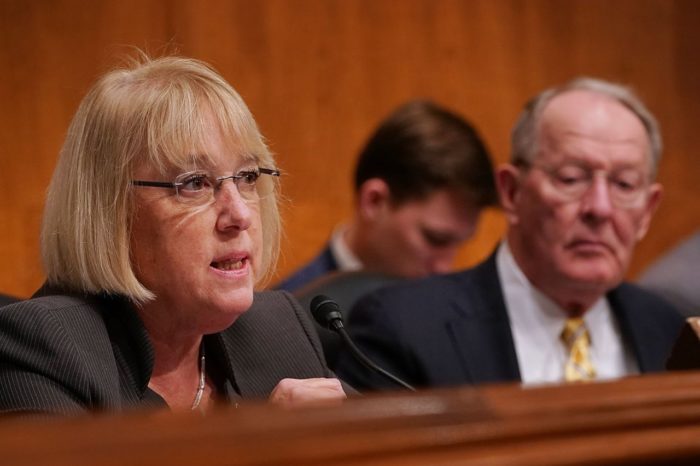Killing the ObamaCare tax will make it easier to restore insurer subsidies.
The House is poised to pass tax reform on Thursday, while Senate Republicans have fortified their draft to include a repeal of ObamaCare’s individual mandate. The latter is being denounced as an attempt to deny Americans health insurance, but Republicans can rebut this falsehood and achieve two policy goals with one reform if they don’t flinch from the debate.
Republicans are right to want to repeal the mandate that fines Americans who don’t buy health insurance. Their dual motive is to repeal the most loathed part of the Affordable Care Act as well as to make tax reform comply with the Senate Byrd Rule that dictates no deficits outside a 10-year budget window.
The individual mandate scores as a savings of $338 billion over 10 years that will be redeployed mostly for tax relief for individuals. The savings continue in year 11 and beyond, which means the 20% corporate rate can be permanent. This is important for sound tax policy and business investment.
With Trumpian accuracy and restraint, Democratic Senate leader Chuck Schumer says this means the GOP “kicks 13 million people off health care to pay for tax cuts for the wealthy. 13 MILLION.” The figure is from a Congressional Budget Office estimate that 13 million more would be uninsured by 2027.
This has little relationship to reality, as even CBO and its scoring allies are starting to admit. Thomas Barthold of the Joint Committee on Taxation testified this week that the bill has “no provision related to Medicaid.” Yet CBO assumes that five million people would drop off Medicaid, which is free. Why would millions abandon free health care simply because there’s no tax for not buying it?
Even CBO concedes that its estimates are “inherently imprecise” because it’s “difficult” to predict how insurers, individuals and other parties would respond. That’s for sure: ObamaCare enrollment is 60% below what CBO estimated.
Some Americans no doubt would decide not to buy insurance if they aren’t hit with a tax, but that would be their choice. Republicans aren’t denying them anything. No other ObamaCare rule or mandate would be changed, and no benefit formula would be altered. Anyone who still wants an ObamaCare policy could still buy it.
Democrats nonetheless say this tax coercion is necessary to drive more young and healthy Americans into the exchanges. Yet on all the evidence millions of these people haven’t signed up even with the mandate, in large part because premiums are rising and doctor networks are growing more restrictive due to the faulty design of the Affordable Care Act. More than six million American households in 2015 decided that ObamaCare products weren’t worth the cost even though they had to pay the tax. Nearly eight in 10 of those people earned less than $50,000.
ObamaCare has also pummeled folks above 400% of the poverty line. These individuals—a couple earning about $65,000—are forced to buy a product they often cannot afford. They are not eligible for tax credits or cost-sharing payments to mitigate the damage, and if they don’t buy insurance their mandate fine can be as large as $1,390.
All of this is causing even CBO to revisit the accuracy of its mandate forecasts. CBO says in its most recent estimate that the agency has “undertaken considerable work to revise” methods on estimating the mandate repeal, and that this new thinking isn’t reflected in its latest work. In other words, CBO is waking up to the reality that the mandate is a limp tool for encouraging people to buy health insurance.
Democrats are also invoking opposition to mandate repeal from the insurance industry, which is especially rich. What industry doesn’t want government to force people to buy its products? But tax credits for low-income folks expand with premium increases, so the poor will be made whole even if premiums rise on the exchanges.
Our bet is that repealing the mandate makes it easier for Senators Lamar Alexander and Patty Murray to pass their bipartisan deal to restore insurer subsidies in exchange for concessions on state flexibility. This could be a worthy trade. The GOP’s right flank will have an easier time voting for the deal with the policy victory of mandate repeal in the bank. Moderate Republicans like Lisa Murkowski (Alaska) and Susan Collins (Maine) will have assurance that the exchanges will be kept on life support.
Republicans needn’t be defensive in this debate because it is solely about giving Americans the freedom to choose. The question they should ask Democrats: If ObamaCare’s insurance offers such great coverage at affordable prices, why does it require political coercion to force people to buy it?
Source: Editorial Board, swj.com
 Listen Online
Listen Online Watch Online
Watch Online Find a Station in Your Area
Find a Station in Your Area








 Listen Now
Listen Now Watch Online
Watch Online
